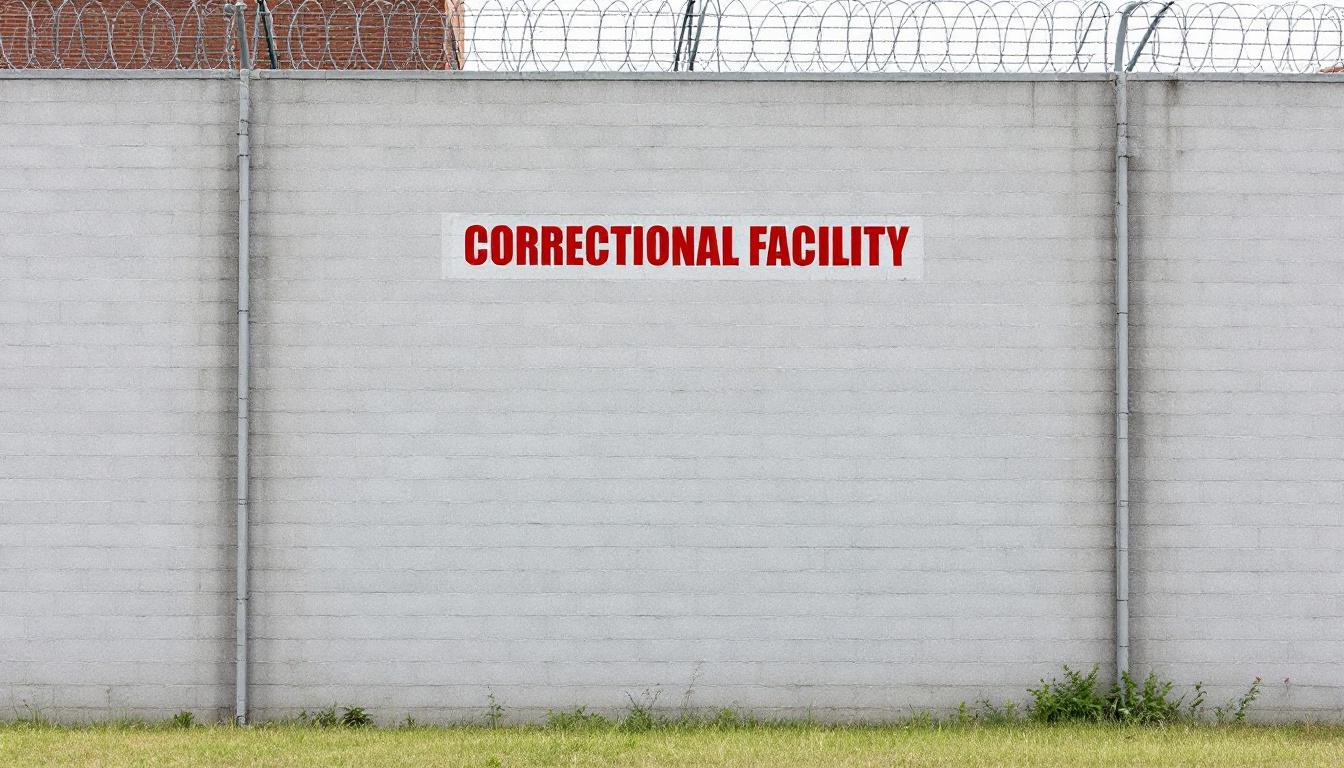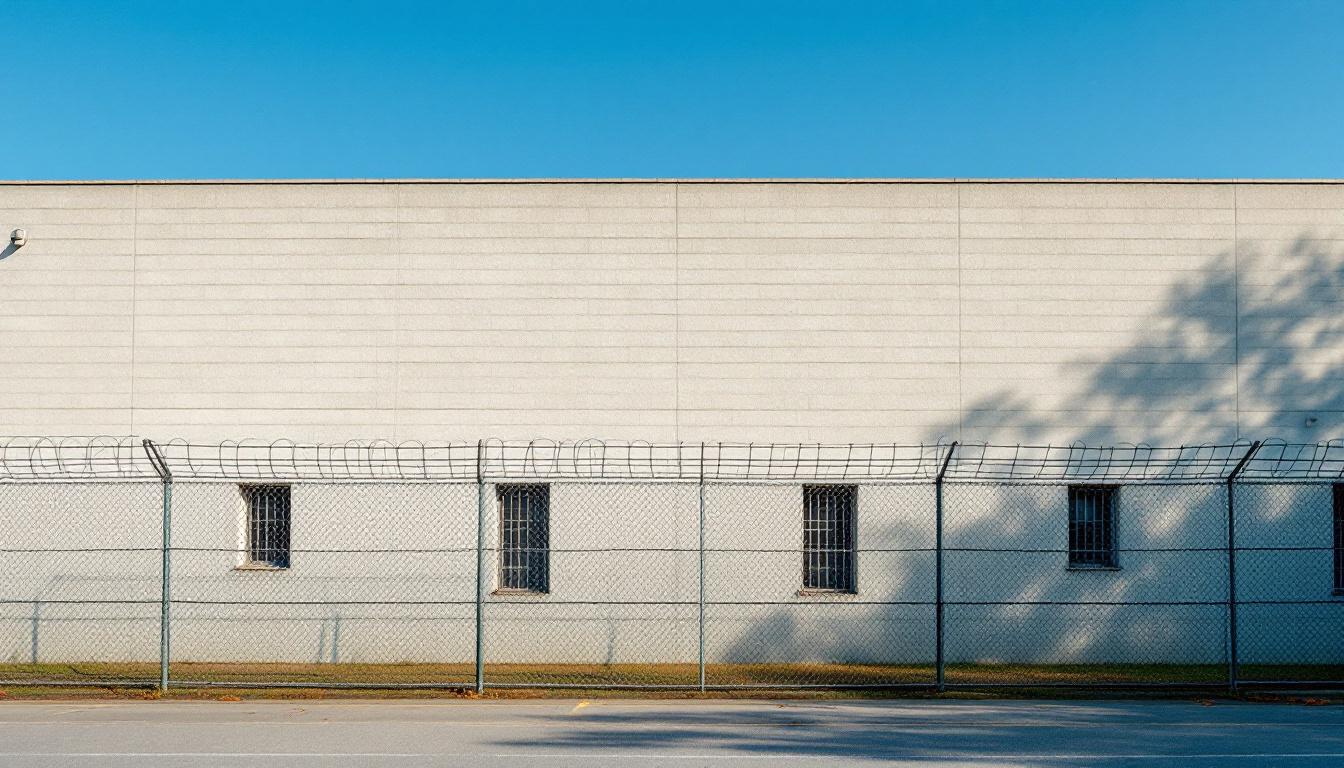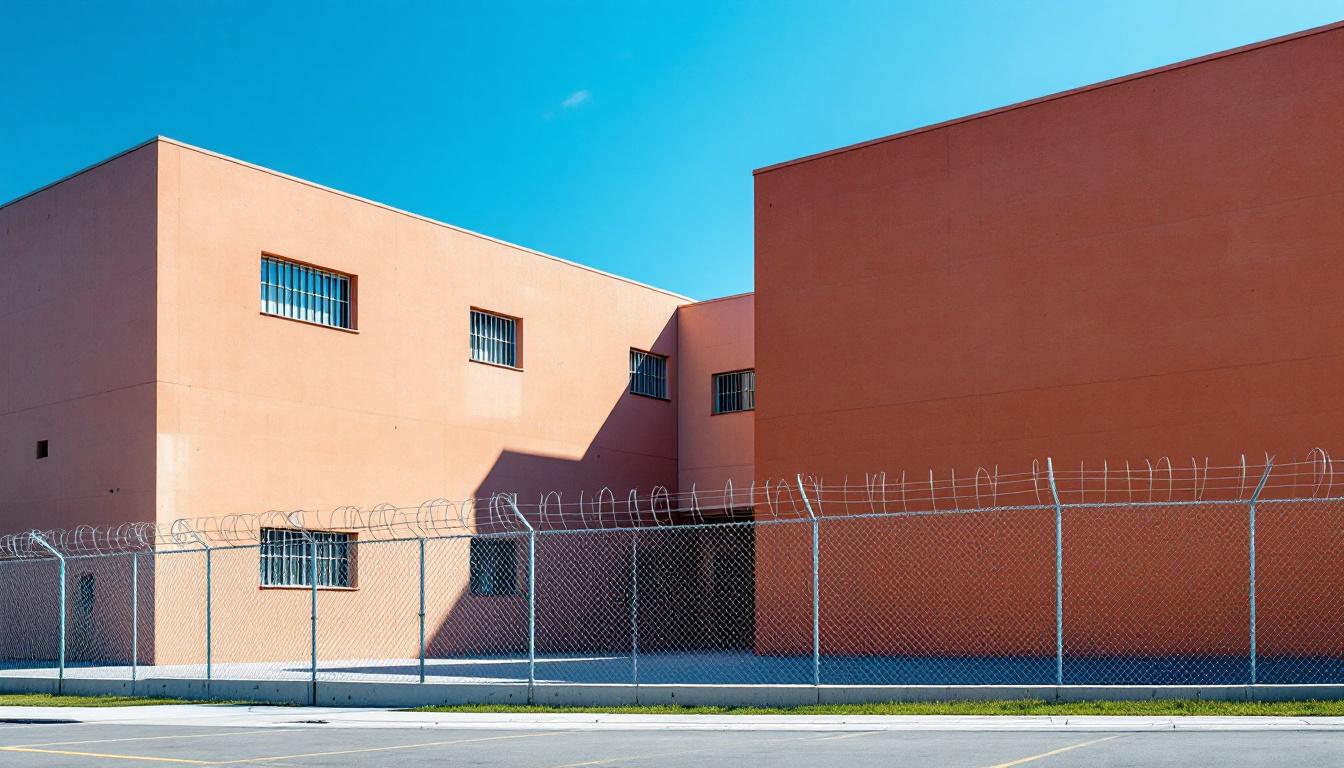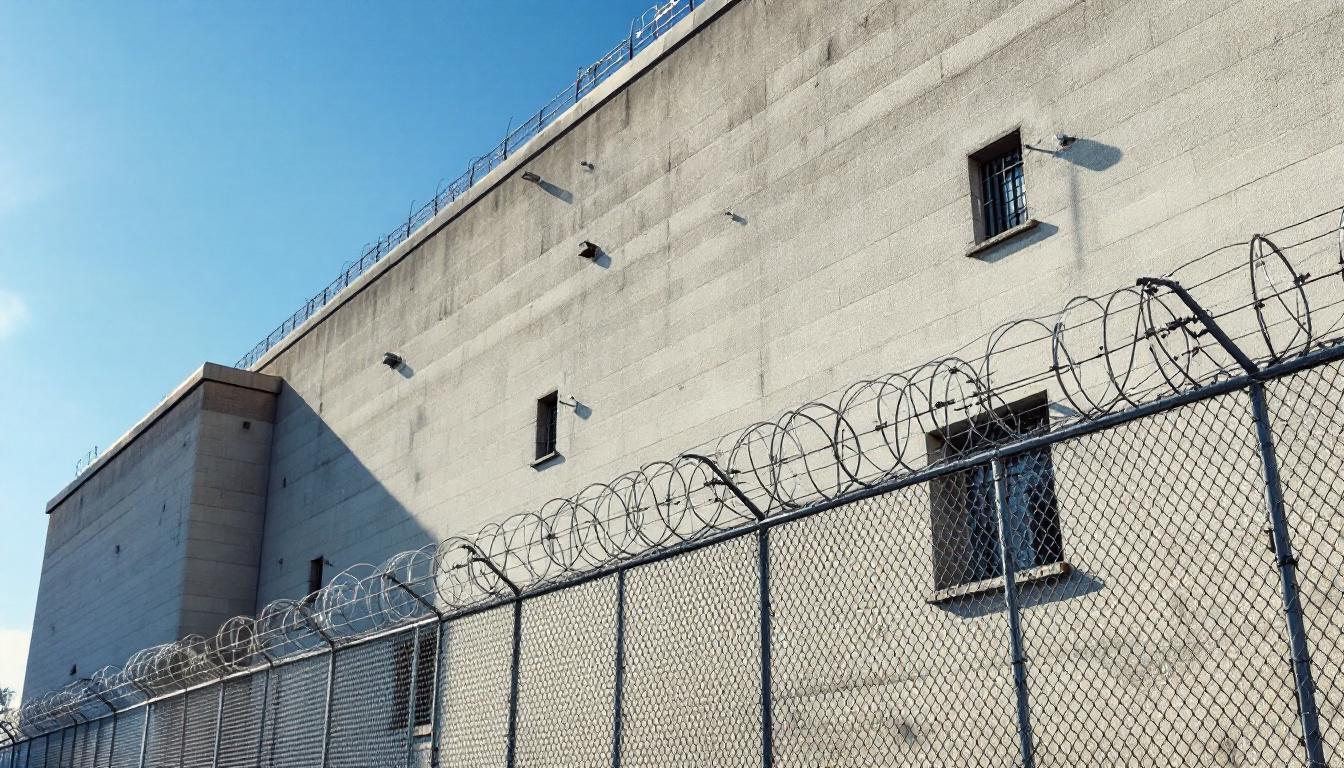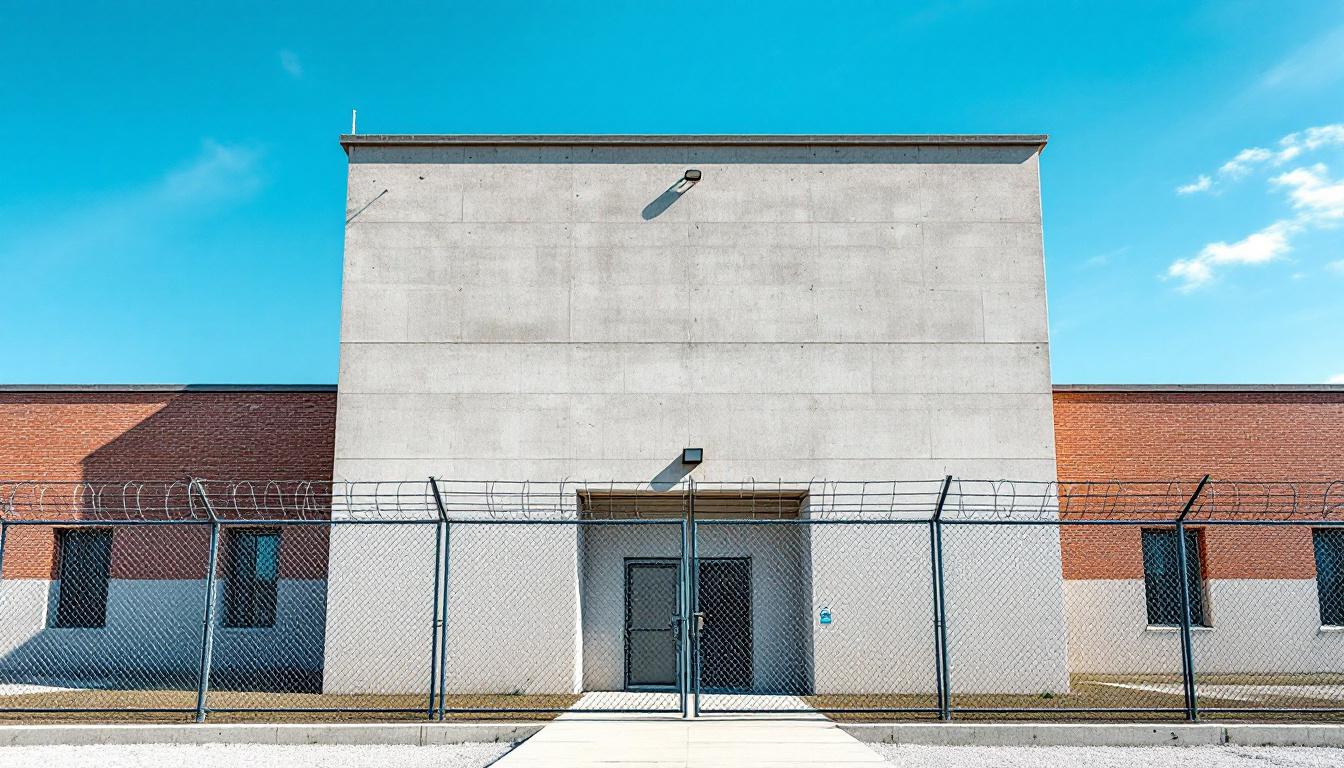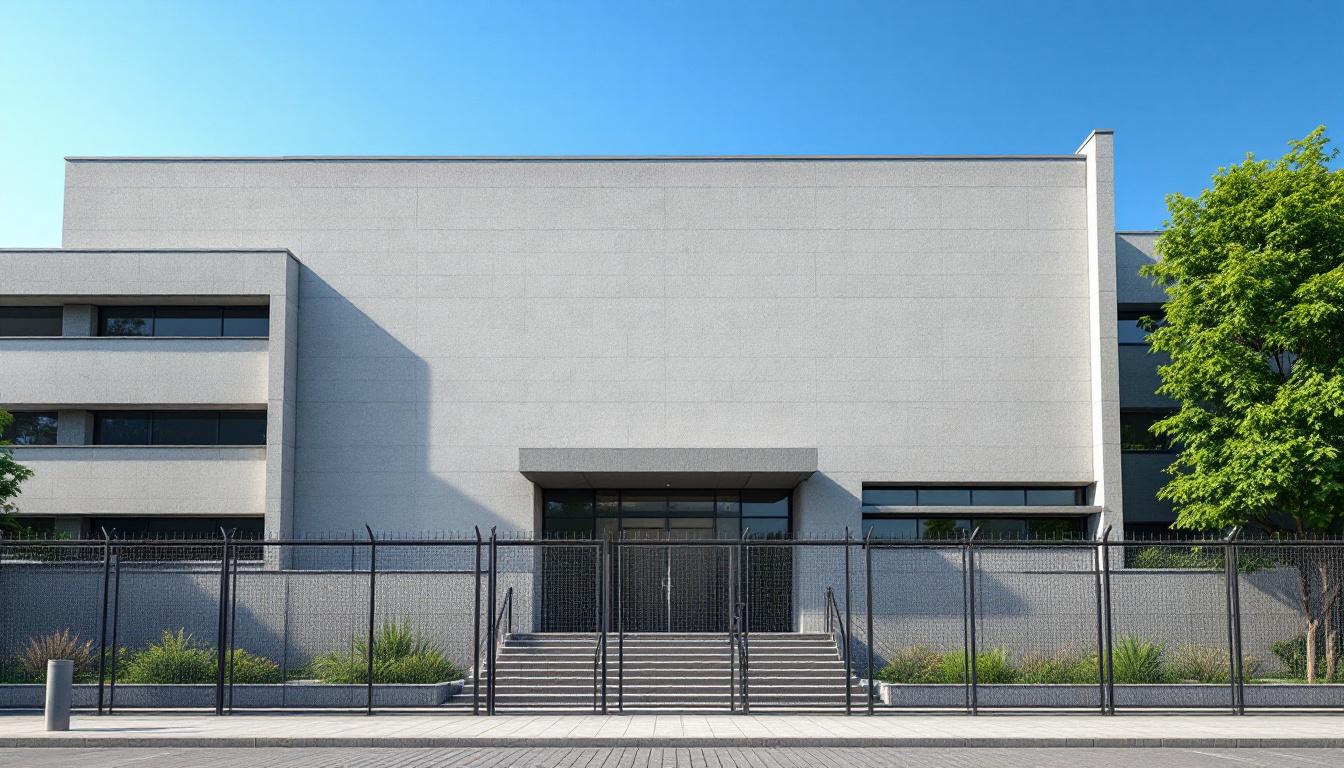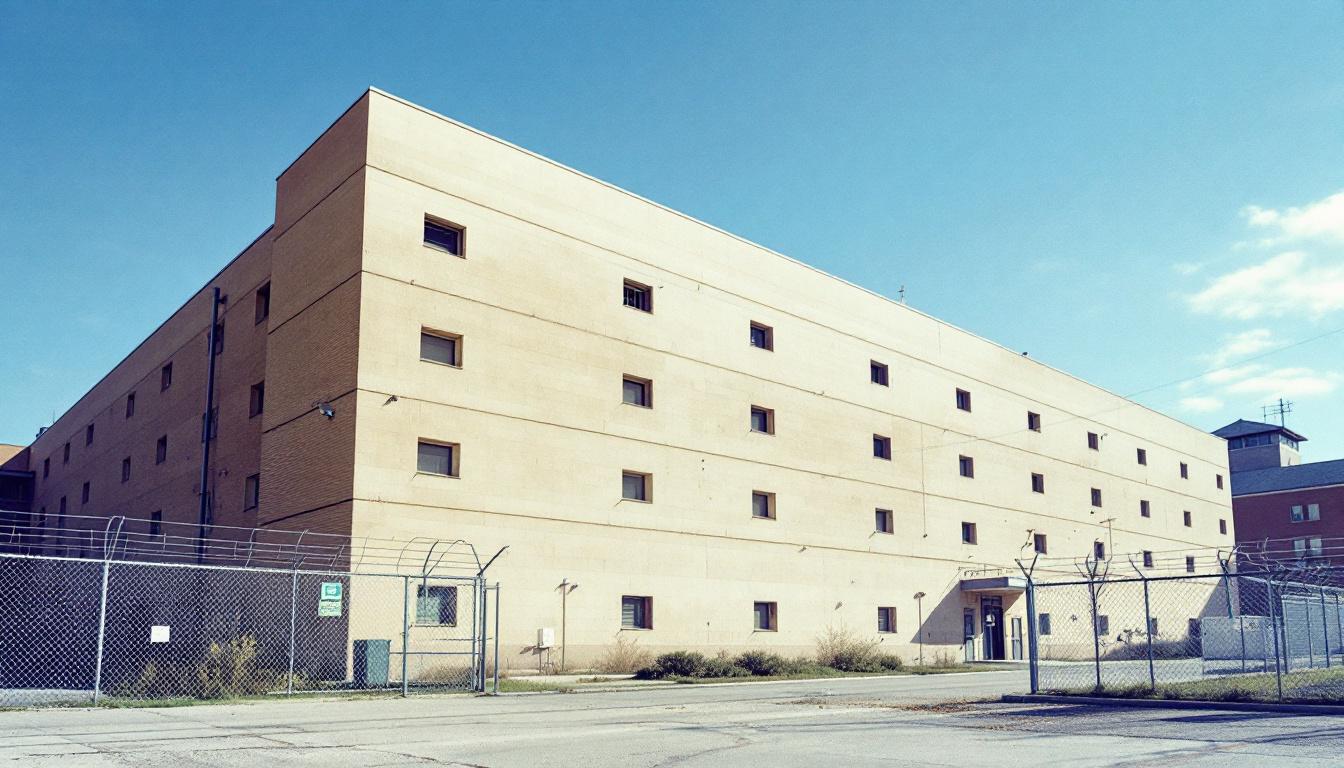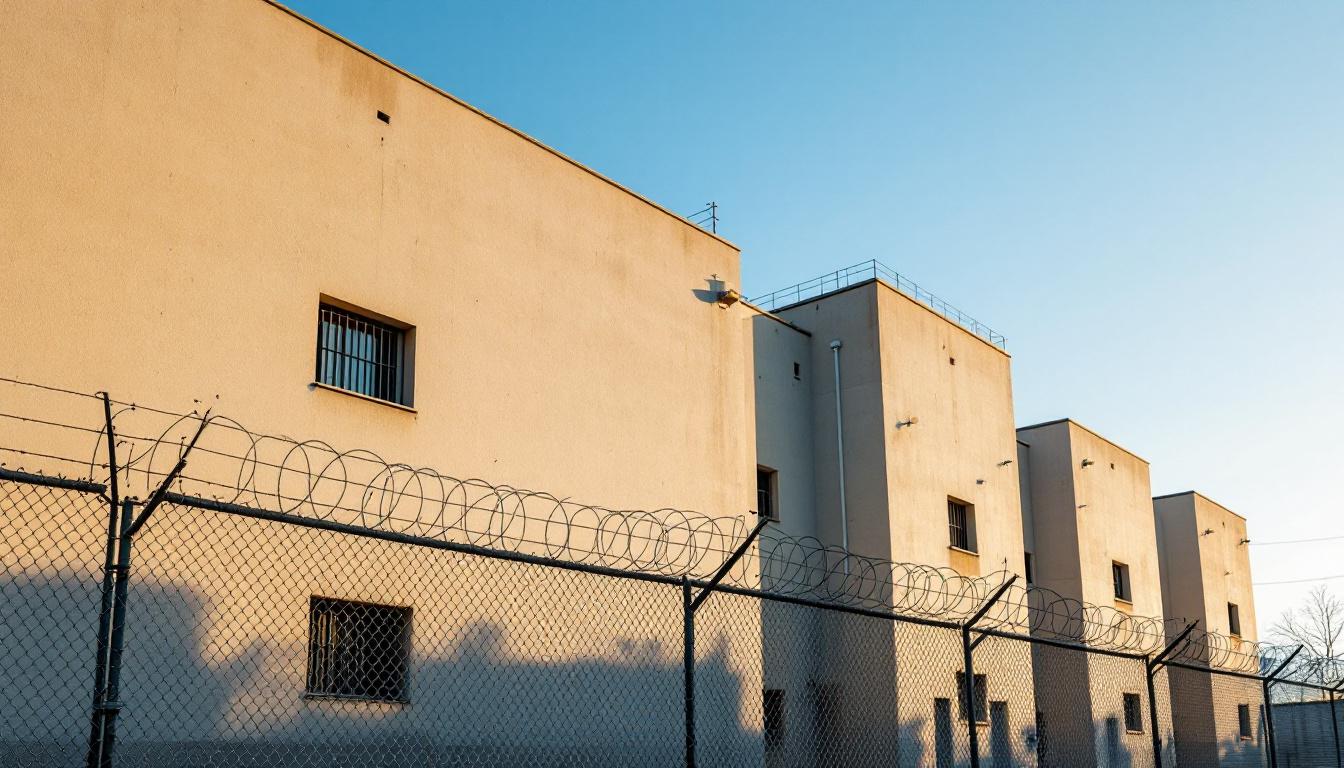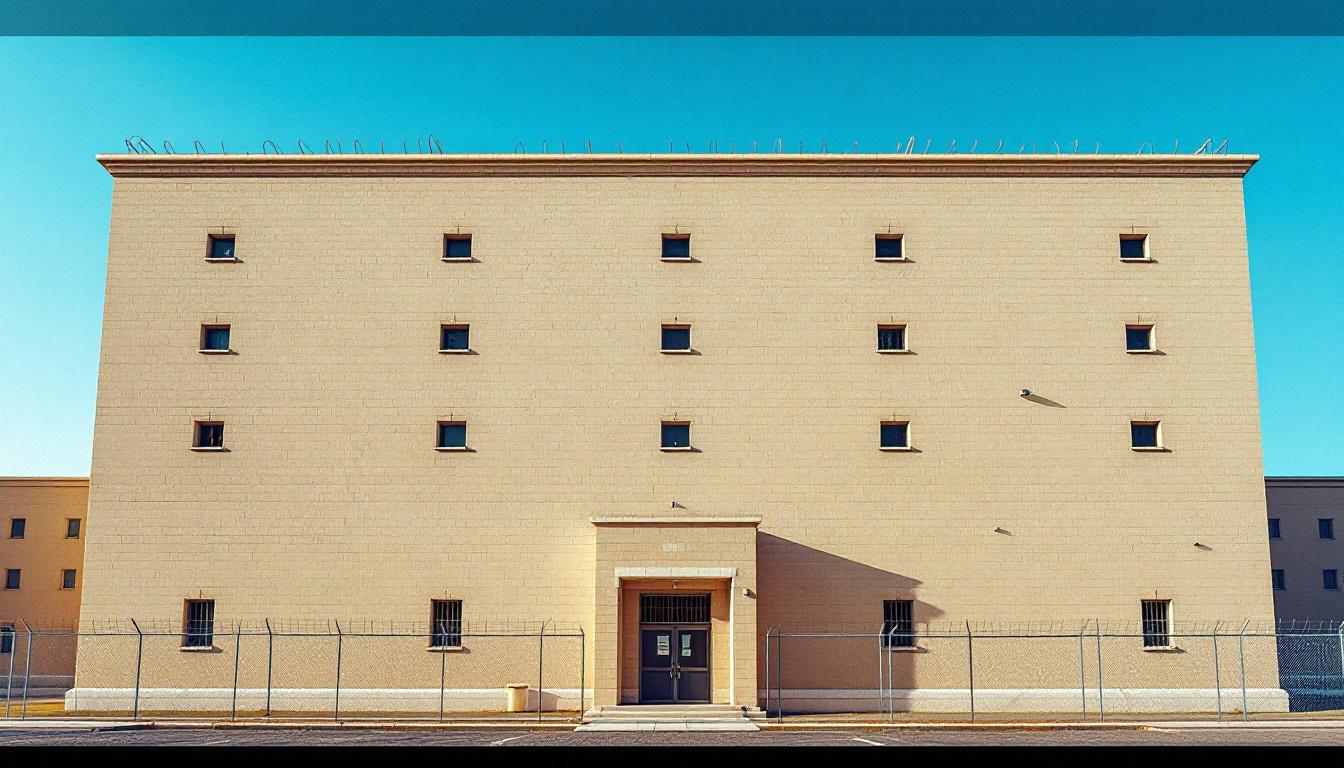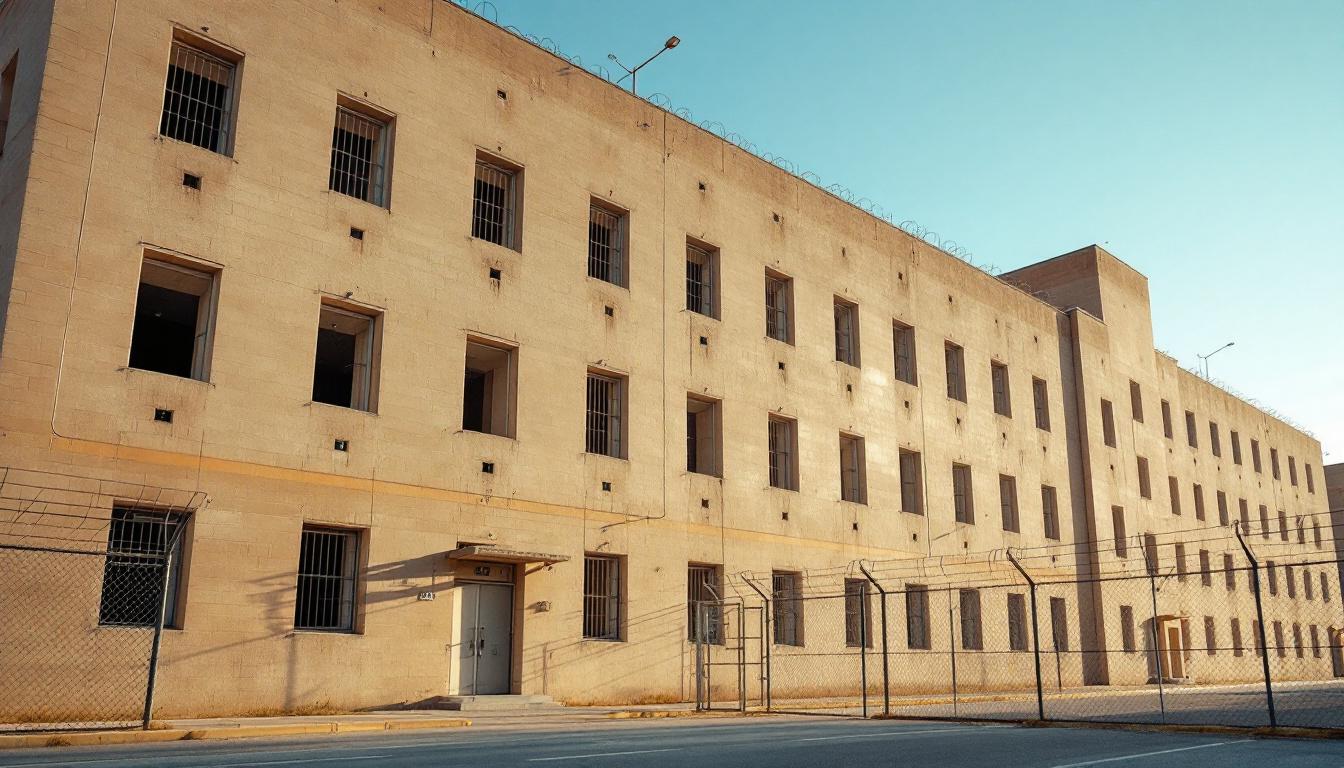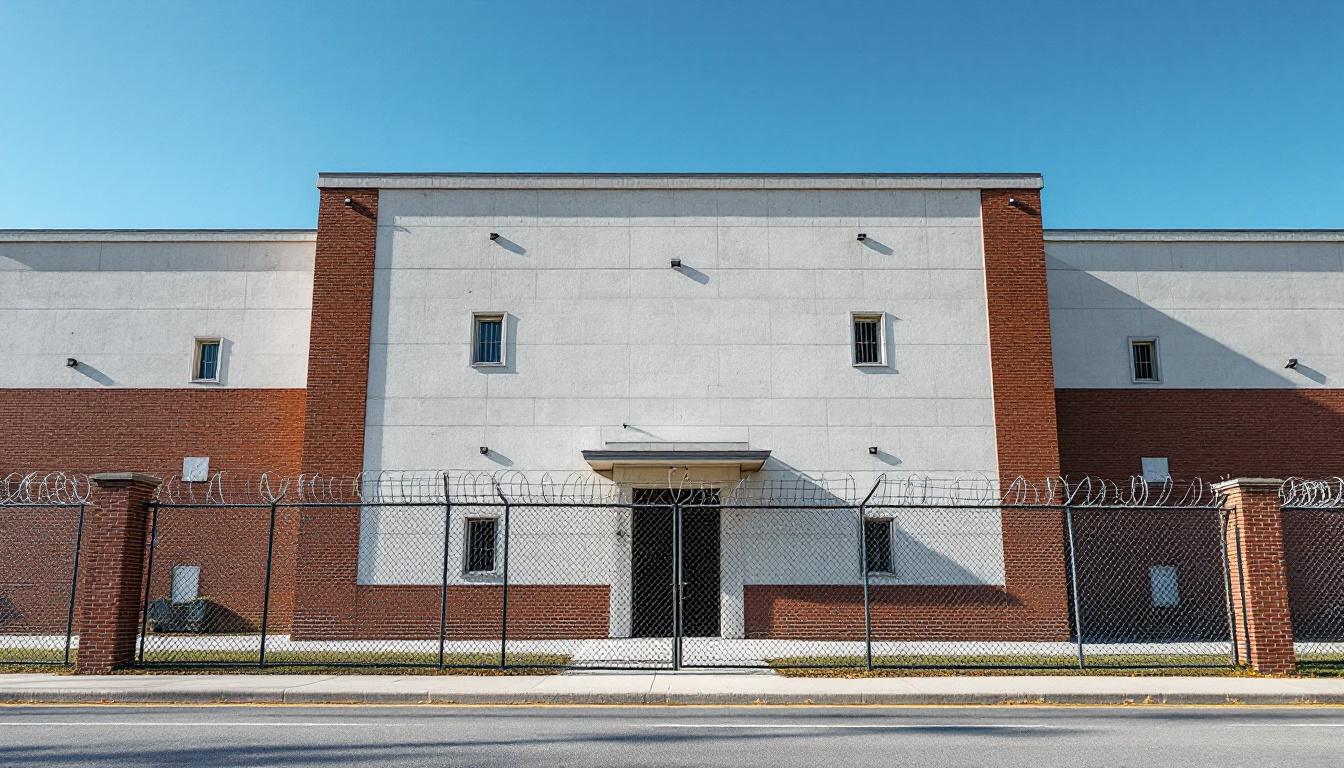
Quick Navigation
How to contact an inmate at Floyd County Corrections
This comprehensive guide will walk you through how to connect with an inmate at Floyd County Corrections. Follow the steps below to find an inmate and send letters and photos:
- Search for the inmate using our search tool below
- Create your account or log in to Penmate
- Write your message (up to 6,000 characters)
- Send instantly - inmates receive printed copies daily
Find an Inmate
Search for an inmate to start communicating today
Tip: You can search by first name, last name, or inmate ID number
To contact a person at Floyd County Corrections start by searching for the person on the official facility website. Perform a search by following these steps:
- Step 1: Enter their first name and last name into the search form and click "Search"
- Step 2: Locate their inmate record
- Step 3: Write down their Inmate ID and any housing information provided
Important! Be sure to enter the person's full name. Nicknames should not be used.
How to Send Messages to Inmates

You can use your phone or computer to send emails, letters, and photos to an inmate. Messages are sent electronically to inmate tablets or kiosks at the facility. If you would like to send a message, start by searching for an inmate at Floyd County Corrections.
Sending Photos and Postcards

A great way to send love and support to a loved one at Floyd County Corrections is to send photos and postcards. It only takes a few minutes to send photos from your phone and it makes a huge difference. You can also mail postcards with words of support and inspiration, or design your own postcard for special moments like birthdays and holidays.
Important! Be sure not to send any explicit photos or they may not be approved by the facility. You can also use a photo printing app like Penmate to make sure your photos are printed at the correct size (4x6 or 3x5) and are mailed according to the rules and regulations of Floyd County Corrections.
Frequently asked questions about Floyd County Corrections
-
How long does it take to deliver a message?
If you're sending an email message your letter is usually delivered within 24-48 hours. For messages sent via mail you should expect delivery within 3-7 days. All messages will need be approved by Floyd County Corrections.
-
How much does it cost to send a message to Floyd County Corrections?
You can send a message free using your phone or mail a message via USPS for the price of a $0.60 stamp and envelope. You can also purchase credits or e-stamps from services starting at $1.99.
-
What services can I use to contact an inmate at Floyd County Corrections?
Penmate
You can use Penmate to send letters and photos to an inmate from your phone. It's an easy way to stay in touch during your loved one's incarceration. Use the inmate locator to find an inmate's location and contact information, then you can send messages within a few minutes.
Securus messaging
Securus may be another option for communicating with an inmate at Floyd County Corrections. You can create a friends and family account and purchase credits to send messages. All messages will be reviewed and must be approved by the facility.
JPay
Some county jails and state prisons may support sending messages with JPay. You must register an account with the system, find your loved one, and purchase stamps to send messages. For some locations you can also attach photos.
Smart Jail Mail
You may also check if Smart Jail Mail is available at Floyd County Corrections. Smart Jail Mail is operated by Smart Communications and has contracted with some state and county jails. After purchasing credits, your messages and photos are sent to the facility, printed out, and then handed out to your loved one.
-
What is the mailing address of Floyd County Corrections?
Mailing address:
Floyd County Corrections
311 Hauss Square
New Albany, IN 47150
Phone: (812) 948-5404Business hours:
- Monday: 8:00 AM – 4:00 PM
- Tuesday: 8:00 AM – 4:00 PM
- Wednesday: 8:00 AM – 4:00 PM
- Thursday: 8:00 AM – 4:00 PM
- Friday: 8:00 AM – 4:00 PM
- Saturday: Closed
- Sunday: Closed
-
What are the visiting hours at Floyd County Corrections?
Visiting hours at Floyd County Corrections vary by housing unit and security level. Generally, visits are scheduled on weekends and holidays, with some facilities offering weekday visits. Contact the facility directly at (812) 948-5404 or check their website for the current visiting schedule. Visits typically last 30-60 minutes and must be scheduled in advance.
-
What items are prohibited when sending mail to Floyd County Corrections?
Prohibited items typically include: cash, personal checks, stamps, stickers, glitter, glue, tape, staples, paperclips, polaroid photos, musical or blank greeting cards, hardcover books, magazines with staples, and any items containing metal or electronics. Only send letters on plain white paper with blue or black ink. Photos must be printed on regular photo paper (no Polaroids). Always check with Floyd County Corrections for their specific mail policies.
-
How do I send money to an inmate at Floyd County Corrections?
You can send money to an inmate at Floyd County Corrections through several methods: 1) Online using JPay, Access Corrections, or the facility's approved vendor, 2) Money orders mailed directly to the facility with the inmate's name and ID number, 3) Kiosks located in the facility lobby, or 4) Over the phone using a credit or debit card. Fees vary by method, typically ranging from $2.95 to $11.95 per transaction.
-
Can I schedule a video visit with an inmate at Floyd County Corrections?
Many facilities now offer video visitation as an alternative to in-person visits. At Floyd County Corrections, video visits may be available through services like Penmate, Securus Video Connect, GTL, or ICSolutions. Video visits typically cost $10-20 for 20-30 minutes and must be scheduled in advance. You'll need a computer or smartphone with a camera and reliable internet connection. Contact the facility for their specific video visitation policies and approved vendors.
-
What identification do I need to visit an inmate at Floyd County Corrections?
All visitors must present valid government-issued photo identification such as a driver's license, state ID, passport, or military ID. Minors must be accompanied by a parent or legal guardian who can provide the minor's birth certificate. Some facilities require visitors to be on the inmate's approved visitation list, which may require a background check. Contact Floyd County Corrections for specific ID requirements and visitor approval procedures.
-
How can I find out an inmate's release date?
To find an inmate's release date at Floyd County Corrections, you can: 1) Use the online inmate search tool if available, 2) Call the facility's records department, 3) Contact the inmate's case manager or counselor, or 4) Have the inmate provide this information during a call or visit. For privacy reasons, some facilities only release this information to immediate family members.
Facility Overview
Contact Information
Floyd County Corrections311 Hauss Square
New Albany, IN 47150
Phone: (812) 948-5404
Official Website
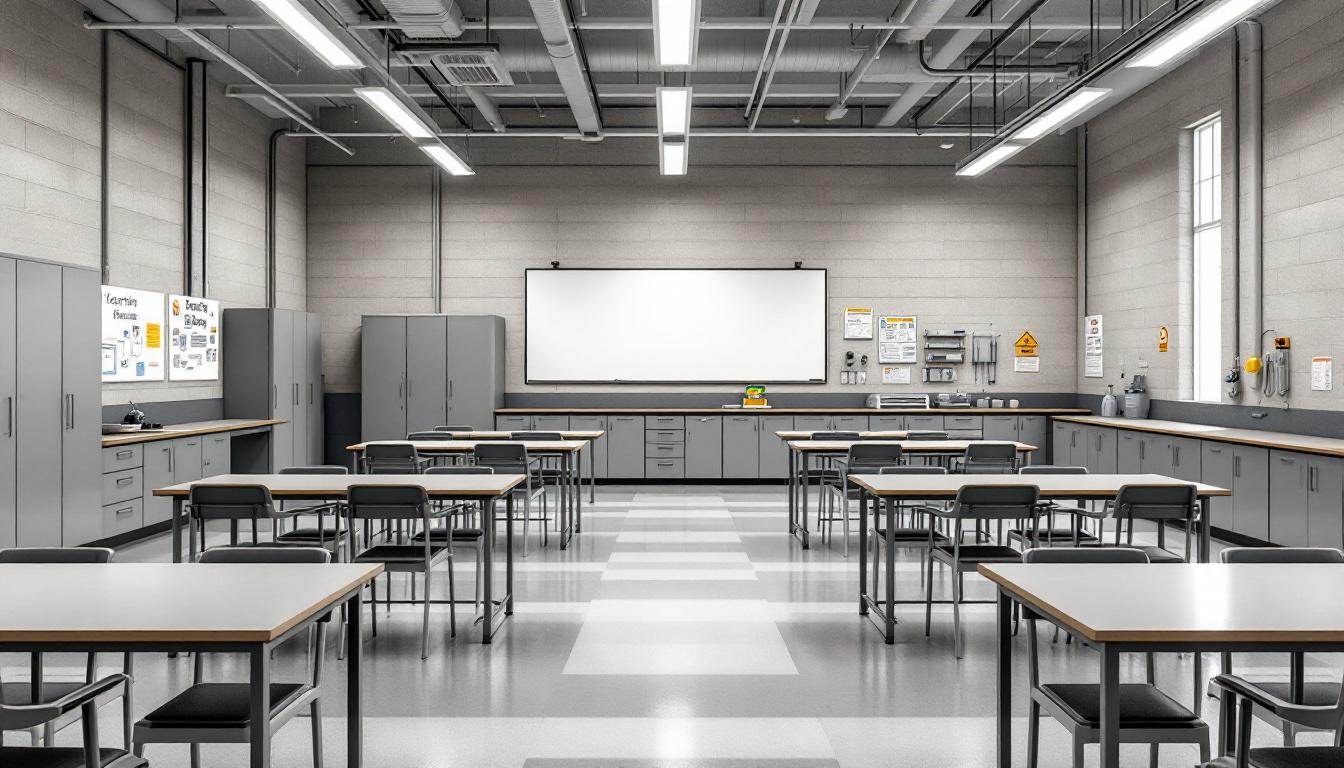
About Floyd County Corrections
Within Georgia's correctional framework, the mission of maintaining public safety while providing structured detention services defines the operational foundation that Floyd County Jail upholds in the Atlanta metropolitan area. This GA correctional facility serves as a crucial component in the state's broader network of detention centers, handling pre-trial detainees and those serving shorter sentences under county jurisdiction. The facility's location within the Atlanta region positions it strategically to support the judicial processes of one of Georgia's most populous areas, where the volume of cases and diverse community needs require consistent, reliable correctional services.
The jail typically operates under standard county detention protocols, offering those incarcerated services that generally include basic medical care, meal programs, and limited recreational opportunities within the constraints of a secure environment. Educational programming may be available on a rotating basis, often focusing on life skills development and substance abuse awareness, though the extent of such offerings can vary based on staffing and resource availability. The facility usually maintains visiting procedures that allow family members to maintain contact with detained individuals, supporting the rehabilitation process through continued community connections.
As part of Georgia's integrated correctional system, Floyd County Jail often coordinates with state-level facilities for transfers and specialized services when needed. The facility's role extends beyond simple detention to include supporting the broader goals of public safety and offender accountability that characterize the state's approach to corrections. Security protocols typically emphasize both the safety of staff and those in custody, while administrative procedures generally align with state standards for county-level correctional operations throughout Georgia.
Programs & Services
Within the structured environment of Floyd County Jail, those incarcerated encounter a comprehensive array of opportunities designed to foster personal development and prepare them for successful community reintegration. The facility's approach emphasizes creating pathways for growth that address both immediate needs and long-term goals, recognizing that meaningful engagement during incarceration can serve as a foundation for positive life changes. Through carefully structured offerings, individuals may access resources that promote skill development, personal reflection, and practical preparation for their eventual return to society.
Educational advancement forms a cornerstone of the facility's developmental approach, with education programs typically encompassing basic literacy, GED preparation, and academic skill enhancement tailored to various learning levels. Additionally, financial literacy courses may furnish participants with essential knowledge about budgeting, debt management, and economic planning—skills that prove invaluable for establishing stability upon release. Vocational training opportunities often complement these academic pursuits, providing hands-on experience in trades and technical skills that align with regional employment markets and offer tangible pathways to economic self-sufficiency.
The facility's support framework extends beyond academic and vocational development to address the spiritual and practical needs of those incarcerated. Faith-based services typically provide opportunities for spiritual growth, community connection, and moral reflection, often serving as sources of comfort and guidance during challenging periods of incarceration. Additionally, essential services such as laundry facilities contribute to maintaining dignity and personal hygiene standards, while creating structured routines that support the overall rehabilitative environment and prepare individuals for the responsibilities of independent living.
Daily Life & Visitation
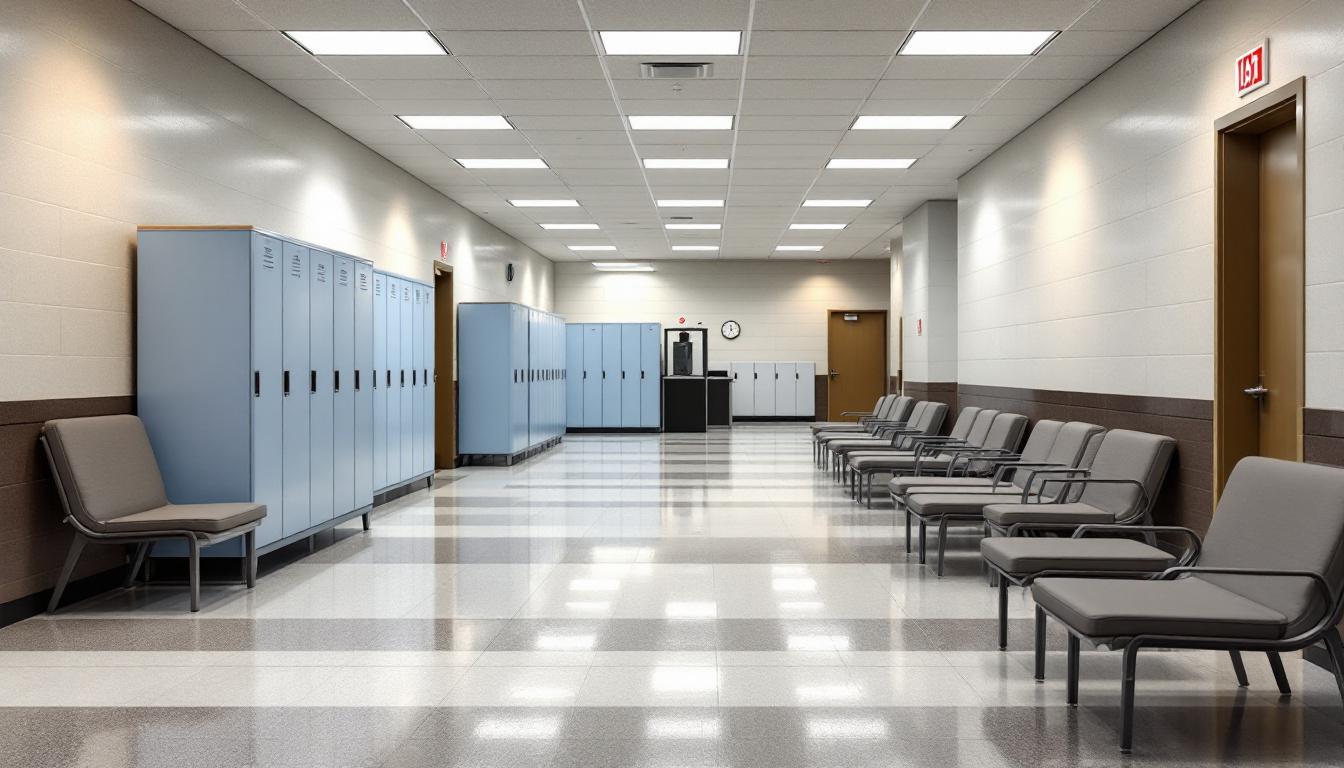
Family connections and social bonds remain central to the experience of those incarcerated at Floyd County Jail, as maintaining relationships with loved ones often provides crucial emotional support during their time at the facility. Today's structured environment consistently revolves around scheduled activities that furnish both routine and opportunities for personal interaction, with those incarcerated navigating a carefully organized day that typically begins with early morning counts and meal service. The daily rhythm generally includes designated times for recreation, programming, and communication with family members, creating a framework that helps residents maintain connections to their communities outside the facility walls.
Living accommodations at the facility typically consist of shared housing units where those incarcerated may develop supportive relationships with fellow residents, often finding common ground through shared experiences and mutual encouragement. While privacy remains limited in the dormitory-style or cell-based housing arrangements, many residents form meaningful connections that help them navigate the challenges of incarceration together. Additionally, the dining areas serve as important social spaces where those incarcerated gather for meals, creating opportunities for conversation and community building within the structured environment of the facility.
The facility generally offers various recreational activities and structured programming that may include educational opportunities, religious services, and group sessions designed to support personal growth and rehabilitation. Those incarcerated typically have access to visitation programs that allow them to maintain face-to-face contact with family members and friends, while telephone privileges and correspondence options furnish additional means of staying connected to their support networks. Work assignments within the facility often provide those incarcerated with purposeful daily activities, whether in food service, maintenance, or other operational roles, creating opportunities for skill development while contributing to the facility's daily operations and fostering a sense of responsibility and community participation.
Ready to Connect?
Start communicating with your loved one today
Search for an Inmate
